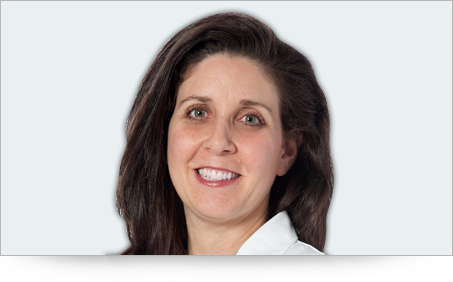
Cleveland Clinic
Cleveland, OH
Brooke Gurland, MD, FACS, FASCRS is a staff surgeon at the Cleveland Clinic in the Digestive Disease Institute. Her specialty interests include functional bowel disorders, incontinence, pelvic organ prolapse, fistulas, and complex pelvic floor dysfunction. She supervises a bowel management program and she advocates a multidisciplinary approach to pelvic floor disorders through combined clinic hours with specialists in urogynecolgoy and urology. Dr Gurland is board certified in general and colorectal surgery and she is trained in laparoscopic, robotic and pelvic surgery.
After receiving her medical degree from Hahnemann University School of Medicine in Pennsylvania, she trained in general surgery at Mount Sinai School of Medicine in New York. She received fellowship training in colorectal surgery at The Cleveland Clinic, Weston. Dr. Gurland is also a 2003 recipient of the Jahnigen Career Development Scholars Award by the American Geriatric Association for a multidisciplinary approach to patients with pelvic floor disorders.
Dr. Gurland is active in numerous professional societies and she is Fellow of the American Society of Colon and Rectal Surgeons and the American College of Surgeon. She is an active member of The American Medical Informatics Association (AMIA) and Healthcare Information and Management System Societies (HIMSS). She has authored several peer reviewed articles and book chapters and she is an invited speaker at both national and international meetings.
Cleveland Clinic
Department of Colorectal Surgery
Our colorectal surgeons perform more than 5,000 surgical procedures annually, including an average of 500 laparoscopic intestinal resections, 260 operations to treat Crohn’s disease, and 170 ileal pouch-anal anastomosis (IPAA) surgeries.
DDI colorectal surgeons performed the world’s first total proctocolectomy and ileoanal pouch procedure with a single-incision.
The Digestive Disease Institute performs the world's highest volume of J-pouch procedures and is the nation's largest referral center for repairing pelvic pouches.
Our surgeons use the latest in diagnostic and treatment options, including transanal endoscopic microsurgery and intraoperative radiotherapy.
DDI colorectal surgeons utilize various surgical methods to avoid a permanent colostomy in the treatment of rectal cancer. These options include:
• Transanal excision
• Radical excision of the rectum with anastomosis of the colon to the anus
• Colonic J pouch
• Coloplasty
DDI houses the largest institutional registries for inherited colon cancer-- David G. Jagelman Inherited Colorectal Cancer Registries- in the United States and the second largest in the world.
Cleveland Clinic was the birthplace of Enterostomal Therapy/Wound Ostomy, Continence Nursing nearly 50 years ago. DDI's Wound Ostomy Continence Nursing School was the first of its kind in the world.
Content available soon!
Content available soon!
- Educational Content
- Featured CME Offerings
- My Lectures
- Ask the Expert
Webcasts
Content available soon
eMonograph
Webcasts
Content available soon
Dinner Meetings
Audiocasts
Content available soon
Content available soon!
© Copyright 2013-2025 GI Health Foundation. All rights reserved.
This site is maintained as an educational resource for US healthcare providers only.
Use of this website is governed by the GIHF terms of use and privacy statement.